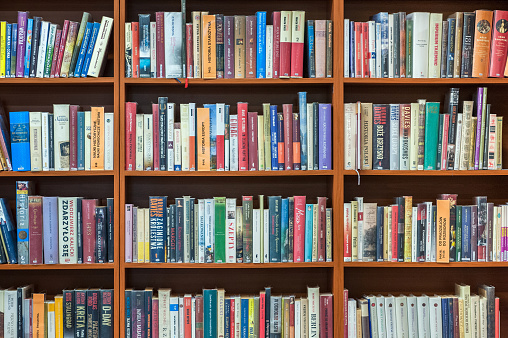What are Libraries’ Purpose in Today’s Society?
April 29, 2022
Libraries have been around for hundreds of years and have always served an important purpose. Back when my dad was a student, the nearby library was the only place where he could find information. Today, libraries don’t serve the purpose of being the only place where people could learn accurate information, but their new purpose is just as important. In today’s society, libraries are a reliable source of information as the internet is filled with “fake news.” Also, libraries can and should transition to digital books which will ensure they stay relevant with younger generations.
Libraries have always been more than a place for just reading books. Nancy Kranich, former president of the ALA, believes that libraries are a “cornerstone of democracy in our communities.”
During an interview with Kranich, she discussed how Ben Franklin opened the first public library because he encouraged the spread of information (a philosophy critical to democracy). She also says that after WW2, libraries attempted to “rejuvenate the democratic spirit in the country.” The reason libraries have been so important to democracy is because libraries have always been reliable sources of information. Democracy only works when the public is informed, and libraries help inform people.
On the other hand, M.G. Siegler argues in his article on TechCrunch.com that “learning has evolved” and “it’s now easier than ever to look something up.” Siegler argues that this new access to information is a good thing but he never acknowledges the fact that information online is often unreliable. That’s where libraries come in. People, regardless of background, trust the reliable information found in libraries. Therefore, they play a vital role in our society.
Libraries’ role in society is greater than most realize. The world is undeniably becoming more digital and in accordance with this trend, people are beginning to read books online. However, a study conducted by PEW Research says that people who are “unemployed, rural Americans, and those with household incomes of less than $30,000” are less likely to use E-books. According to John Shank, an investigative journalist for PBS, without libraries, the divide “would be even greater” because, for some, the only access point for digital services is a library.
Throughout the rest of Shank’s article, he brings up ideas about what the “library of tomorrow should be.” In this library, people would use the library as a “community service that could help people understand new technology.” In doing so, the traditional libraries would be transformed into improving people’s knowledge of the world with books and technology. Doing this would continue to make libraries essential in today’s society.
Finally, an early way for libraries to stay relevant so everyone is transitioning to e-books. As I discussed earlier, the library’s new mission should be to educate people about technology. If done successfully, people could have newfound access to online books. Another Pew Research project shows e-books dominate printed books in many categories. When reading in bed, reading while traveling, when someone has a wide selection to choose from, e-books dominated printed books. The reason for this trend is obvious, technology dominates our life so having a book on our phone or computer is very convenient. If libraries molded their purpose and started dominating the e-book market, they will continue to stay relevant.
